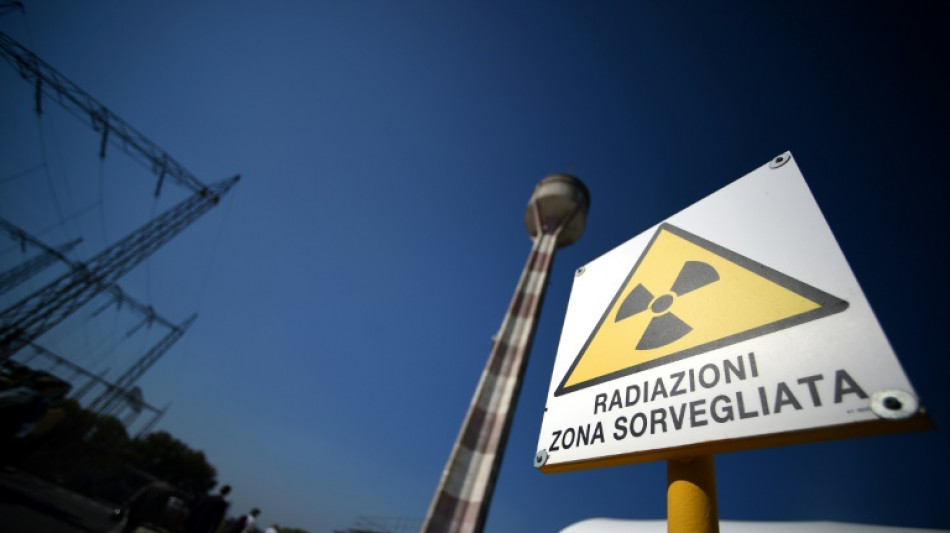
-
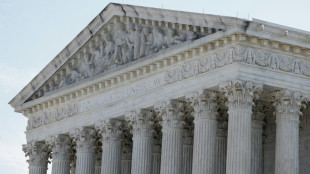 US Supreme Court allows third country deportations to resume
US Supreme Court allows third country deportations to resume
-
Oil prices tumble as markets shrug off Iranian rebuttal to US

-
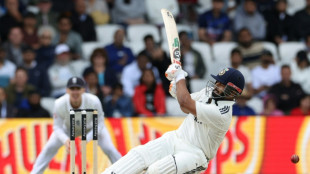 Rishabh Pant: India's unorthodox hero with 'method to his madness'
Rishabh Pant: India's unorthodox hero with 'method to his madness'
-
PSG ease past Seattle Sounders and into Club World Cup last 16

-
 Atletico win in vain as Botafogo advance at Club World Cup
Atletico win in vain as Botafogo advance at Club World Cup
-
Osaka, Azarenka advance on grass at Bad Homburg

-
 Haliburton latest NBA star with severe injury in playoffs
Haliburton latest NBA star with severe injury in playoffs
-
Trump wants quick win in Iran, but goal remains elusive
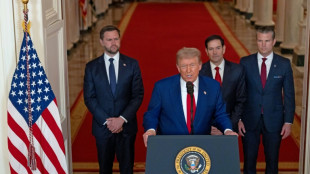
-
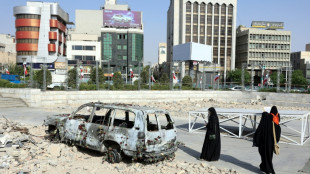 Iran attacks US base in Qatar, Trump says time to make peace
Iran attacks US base in Qatar, Trump says time to make peace
-
Kasatkina falls, Fonseca secures first win on grass at Eastbourne

-
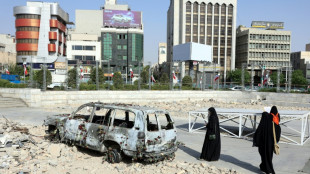 Iran attacks US base in Qatar in retaliation for strikes on nuclear sites
Iran attacks US base in Qatar in retaliation for strikes on nuclear sites
-
Club World Cup prize money does not mean more pressure: Chelsea boss Maresca

-
 Leeds sign Slovenia defender Bijol from Udinese
Leeds sign Slovenia defender Bijol from Udinese
-
E.coli can turn plastic into painkillers, chemists discover

-
 Bluff and last-minute orders: Trump's path to Iran decision
Bluff and last-minute orders: Trump's path to Iran decision
-
US strikes on Iran open rift in Trump's support base
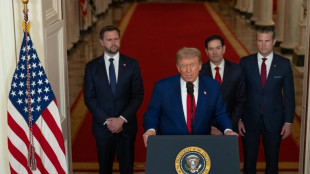
-
 Indiana's Haliburton has torn right Achilles tendon: reports
Indiana's Haliburton has torn right Achilles tendon: reports
-
England rally after Pant heroics to set up thrilling finish to India opener

-
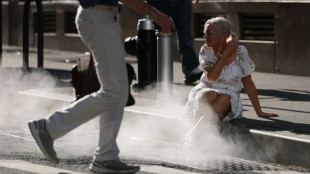 US hit by first extreme heat wave of the year
US hit by first extreme heat wave of the year
-
Holders Thailand among seven set for LPGA International Crown

-
 England set 371 to win India series opener after Pant heroics
England set 371 to win India series opener after Pant heroics
-
UK and Ukraine agree to deepen ties as Zelensky meets Starmer
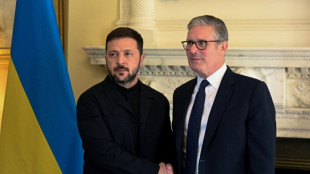
-
 New York state to build nuclear power plant
New York state to build nuclear power plant
-
Syria announces arrests over Damascus church attack
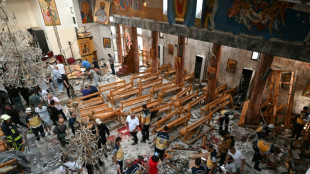
-
 Bradley eyes playing captain role at Ryder Cup after win
Bradley eyes playing captain role at Ryder Cup after win
-
US existing home sales little-changed on sluggish market

-
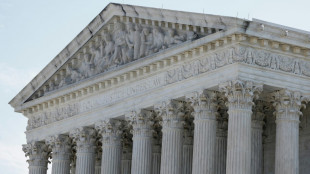 Top US court takes case of Rastafarian whose hair was cut in prison
Top US court takes case of Rastafarian whose hair was cut in prison
-
Greece declares emergency on Chios over wildfires
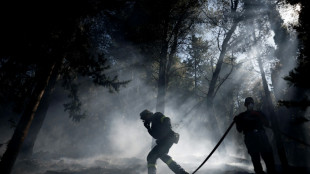
-
 Embattled Thai PM reshuffles cabinet as crisis rages
Embattled Thai PM reshuffles cabinet as crisis rages
-
Killer whales spotted grooming each other with seaweed

-
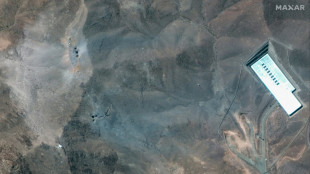 Where is Iran's uranium? Questions abound after US strikes
Where is Iran's uranium? Questions abound after US strikes
-
EU approves MotoGP takeover by F1 owner Liberty Media
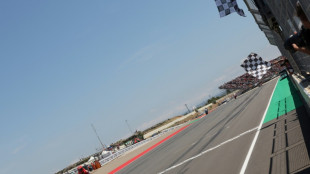
-
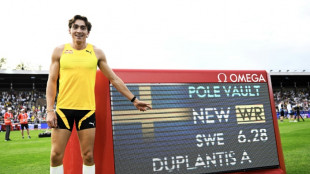 Duplantis says vaulting 6.40m is within the 'realm of possibility'
Duplantis says vaulting 6.40m is within the 'realm of possibility'
-
Pant piles on agony for England with record-breaking century

-
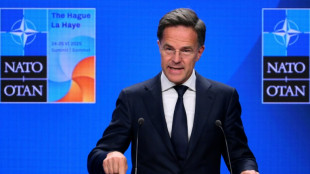 NATO to take 'quantum leap' with 5% summit pledge: Rutte
NATO to take 'quantum leap' with 5% summit pledge: Rutte
-
Textor sells Crystal Palace stake to boost hopes of European competition

-
 Earth's satellites at risk if asteroid smashes into Moon: study
Earth's satellites at risk if asteroid smashes into Moon: study
-
Syria president vows those involved in church attack will face justice
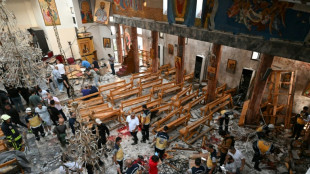
-
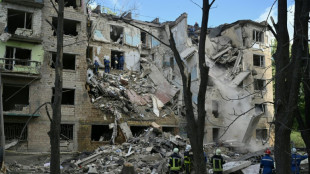 Russian barrage kills 10 in Kyiv, including 11-year-old girl
Russian barrage kills 10 in Kyiv, including 11-year-old girl
-
Military bases or vital waterway: Iran weighs response to US strikes

-
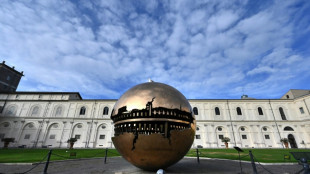 Italian sculptor Arnaldo Pomodoro dies aged nearly 99
Italian sculptor Arnaldo Pomodoro dies aged nearly 99
-
Rahul and Pant build India lead against England

-
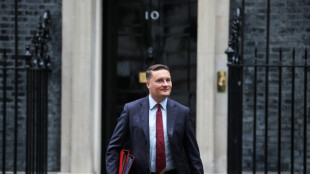 UK probes maternity services after scandals
UK probes maternity services after scandals
-
Asian countries most vulnerable to Strait of Hormuz blockade
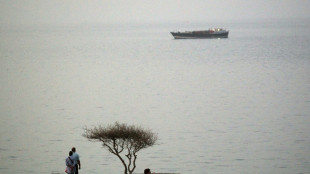
-
 Anger as Kanye West to perform in Slovakia after Hitler song
Anger as Kanye West to perform in Slovakia after Hitler song
-
Israel targets Iran Guards, Tehran prison in fresh wave of strikes
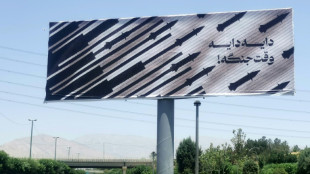
-
 Star-packed, Covid-shaped 'Death Stranding 2' drops this week
Star-packed, Covid-shaped 'Death Stranding 2' drops this week
-
IOC is in 'best of hands', says Bach as he hands over to Coventry
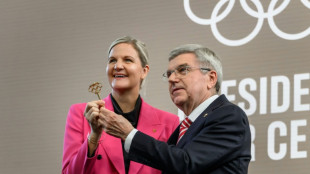
-
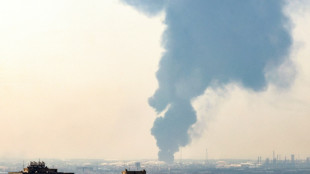 Oil prices seesaw as investors await Iran response to US strikes
Oil prices seesaw as investors await Iran response to US strikes
-
Beijing issues weather warning for hottest days of year
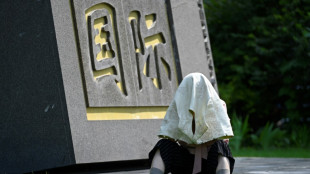

Italy breaks 'taboo' with push to revive nuclear
Italy's cabinet opened the door Friday to a return to nuclear power, aiming to overturn nearly 40 years of opposition -- though experts say any revival is at least a decade away.
Prime Minister Giorgia Meloni's hard-right government says nuclear could play a key role in increasing energy security, as well as slashing Italy's carbon emissions and sky-high electricity prices.
Energy Minister Gilberto Pichetto Fratin has set a 2026 deadline to draw up a legal framework for everything from traditional reactors to next-generation technologies.
"With the latest generation of nuclear power, together with renewables, we will be able to achieve the objectives of decarbonisation, guaranteeing the country's full energy security," Pichetto Fratin said on Friday.
But opponents say nuclear is much more costly than other low-carbon energies, takes years to implement and gives policymakers an alibi to slow the phase-out of gas, a fossil fuel driving climate change.
In neighbouring France, which boasts one of the globe's largest nuclear power programmes, the latest, new-generation plant cost four times the initial estimate and came online 12 years behind schedule.
Luca Bergamaschi from Italy's ECCO climate think tank told AFP that "in the best-case scenario, Italy could not have nuclear power before 2035".
- 'Taboo' -
Italy used to be a pioneer in nuclear power but Italians voted overwhelmingly against it after the 1986 Chernobyl disaster, triggering a phase-out.
The last reactors shut in 1990 and attempts by Rome to revive the sector were stymied by another referendum in 2011 following the Fukushima accident.
Nor does Italy have a national repository for nuclear waste, as over 50 proposed sites have refused to host it.
Energy consultant Simona Benedettini welcomed moves to break the "taboo" around nuclear and said Italy still boasts top-class researchers in the field it can draw on.
In addition to covering traditional fission reactors, the new legal framework will also cover research, development and use of fusion energy.
It will also cover the dismantling of old plants, management of radioactive waste and spent nuclear fuel.
Italy had four nuclear reactors, all of which have been defueled and are being decommissioned.
No specific new sites or projects have been identified but the energy minister says nuclear power would also be used for hydrogen production, to help decarbonise Italy's most energy-intensive sectors, such as steel.
The ministry will fund investments to the tune of 20 million euros ($21 million) a year from 2027 to 2029, Pichetto Fratin said.
Talks are already underway between energy group Enel, engineering company Ansaldo and defence company Leonardo to set up state-backed company to build small modular reactors (SMRs), he said.
SMRs are advanced nuclear reactors that have about one-third of the generating capacity of a traditional nuclear power reactor.
Designed to be built in factories, they offer the promise of being cheaper to produce and quick to build, but are still experimental.
- 'Geopolitical risk' -
Italy is not alone in flirting with nuclear power again. Since gas prices spiked with the Ukraine war, global interest in the sector is at its highest since the oil crises in the 1970s, according to the International Energy Agency.
Britain said in February it was changing laws to speed up the country's rollout of mini-nuclear reactors.
But Beatrice Petrovich, senior energy analyst at climate think tank Ember, said focusing on nuclear in Italy "risks being counterproductive".
New nuclear "is more expensive than wind and solar and takes longer to commission and install", while policymakers should be looking at storage and enhanced power grids for renewables instead, she said.
"Nuclear would also introduce an additional reliance on foreign fuel", namely uranium, "which could pose real geopolitical risk", she told AFP.
Some 81 percent of Italians are still anti-nuclear, according to an Ipsos poll from November -- and critics are already mobilising support for a potential new referendum.
But businesses hope it could be a way to slash electricity costs, which are much higher in Italy than some of its EU neighbours, in part due to its reliance on gas.
Just over 50 percent of Italy's electricity generation mix in 2024 was fossil power, according to Ember.
In a 10-year energy and climate plan published last year, Rome said it aims to install enough nuclear capacity by 2050 to generate between 11 percent and 22 percent of the power it uses.
It said that could be done using mainly SMRs, but also fusion power plants -- a technology Meloni has said is a "game changer", but which is still highly experimental.
- 'Greenwashing' -
Emanuele Orsini, the head of Italy's business lobby Confindustria, has called for old reactors to be "reactivated".
He has also suggested local communities' opposition to new sites could be bypassed by companies housing SMRs in-house.
But Bergamaschi, from the ECCO think tank, said there were so many legal, technical and political hurdles to nuclear power that "it will most likely never arrive" in Italy.
He said the narrative of reviving nuclear was being pushed by firms that want government support to develop and sell new technologies.
The idea also benefits those who "want to slow down the deployment of cheaper renewable generation, storage and grid in the power sector, to protect the market share and profits of gas".
Meloni's hard-right government has proved lukewarm on renewables, instead seeking to transform Italy into a "gas hub" for the Mediterranean.
Focusing on nuclear allowed ministers to appear committed to low-carbon energy while sticking with fossil fuels, Bergamaschi argued, saying that "as far as Italy is concerned, for all practical reasons, nuclear power is greenwashing".
J.Saleh--SF-PST
